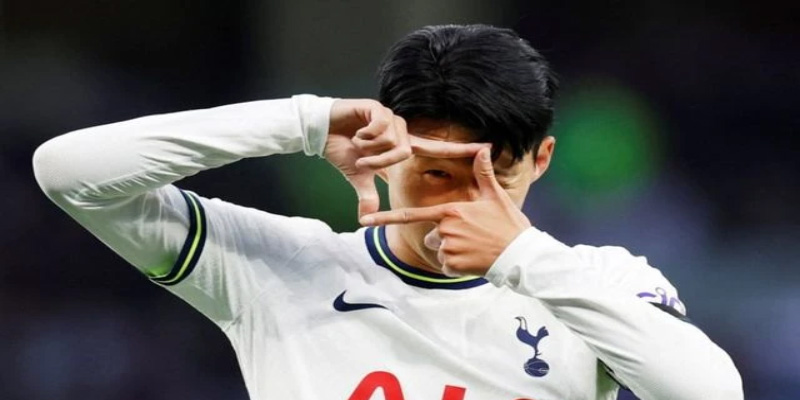Tottenham’s revered captain, Son Heung-min, known for his electrifying plays and leadership on the pitch, stands at a career crossroads. Recently sidelined by a hamstring injury, he’s now under careful guidance as both club and South Korea’s national team work to manage his comeback. Balancing his athletic brilliance with essential recovery, coaches are challenged to keep Son at peak form without risking his long-term health. The stakes are high, and so is the anticipation for his full return, as fans worldwide eagerly F8BET await the next chapter in Son’s illustrious career.
The Balancing Act Between Club and National Team Duties
One of the most complex and challenging aspects of professional football is the interplay between club and national team commitments. For players like Son Heung-min, navigating this dual responsibility requires strategic foresight and careful planning.
The Unique Pressures of International Duty
International competitions evoke immense national pride and passion. Representing one’s country is often seen as a pinnacle achievement for players. For South Korea, Son’s presence on the pitch embodies hope and ambition. Yet, the pressure associated with international duty can weigh heavily on players, especially when they are nursing injuries or returning after a layoff.
Coach Hong Myung-bo’s focus on protecting Son’s health indicates a growing awareness of these challenges. Understanding the player’s emotional investment in national duty, Hong stresses the importance of prioritizing long-term health over short-term gains. This philosophy fosters a culture of sustainability within the team, ensuring that players can contribute meaningfully without compromising their well-being.
The Club’s Perspective
From the club’s viewpoint, managing player availability is paramount. Clubs invest heavily in their players, and losing a key asset to injury can significantly impact performance and results. Therefore, it’s essential for clubs like Tottenham to communicate effectively with national teams to manage player workloads and mitigate risks.
Ange Postecoglou’s decision to substitute Son early against Aston Villa exemplifies a proactive approach to player management. Such actions reflect a broader strategy to maximize Son’s contributions throughout the season, preserving his energy for critical matches both domestically and internationally.
Finding Common Ground
The relationship between club and national teams can often be contentious, especially during busy periods in the football calendar. Striking a balance that satisfies both parties is vital for fostering collaboration. Effective dialogue between coaching staff and medical personnel ensures that everyone is aligned in their objectives.
For players like Son, having open lines of communication helps alleviate tensions and reduces the likelihood of mismanagement. Ultimately, when clubs and national teams work harmoniously, it benefits not only the players but also the pursuit of success on both fronts.
The Legacy of Son Heung-min: Inspiring Future Generations
As Son Heung-min continues to make strides in his career, the legacy he leaves will resonate far beyond his time on the pitch. His accomplishments and determination serve as an inspiration to aspiring footballers around the globe.
Breaking Barriers as an Asian Player
Son’s journey is particularly remarkable considering the challenges faced by Asian players in European leagues. Historically, there have been barriers to entry for non-European athletes, including cultural differences and stereotypes. However, Son’s success has shattered preconceived notions, paving the way for future generations of Asian footballers.
His dedication to excellence exemplifies the idea that talent knows no borders. Aspiring players look up to Son not just for his accolades, but for his perseverance in overcoming hurdles. Each time he steps onto the pitch, he carries the hopes of countless young athletes who dream of following in his footsteps.
Role Model On and Off the Pitch
Beyond his prowess as a player, Son’s character and professionalism make him a role model. He represents values such as humility, respect, and a strong work ethic. These attributes resonate with fans and fellow players alike, earning him widespread admiration.
Son’s philanthropic efforts further enhance his reputation. Engaging in charitable initiatives and community outreach demonstrates his commitment to giving back. This multifaceted approach to leadership sets an example for current and future players, emphasizing the significance of using one’s platform to make a positive impact.
The Global Impact of Son’s Stardom
Son Heung-min’s influence stretches beyond the realms of club and international football. His presence in the Premier League has contributed to the globalization of the sport, attracting interest from fans worldwide. South Korea’s national team, buoyed by Son’s popularity, enjoys increased visibility, allowing it to cultivate talent and inspire future stars.
Moreover, Son has become a cultural ambassador for South Korea. His status as a global football icon allows him to foster connections between diverse cultures, bridging gaps through the universal language of football. For millions of fans, Son symbolizes hope, aspiration, and the potential for greatness.
Conclusion
Through his journey, Son inspires future generations to dream big, break barriers, and embrace the beautiful game. His legacy will undoubtedly continue to shape the landscape of football, leaving an indelible mark on the hearts of fans and players alike. As we watch Son Heung-min grace the pitch, we are reminded that behind every superstar lies a story of resilience, determination, and the relentless pursuit of greatness.
